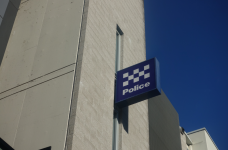Police Want Further Dilution of Right to Silence

A little over two years ago, NSW Police were pushing then-Premier Barry O’Farrell to remove the right to silence for those accused of serious criminal offences.
Back then, police argued that legal reform was desperately needed to address situations where an accused person chose to remain silent in the face of police questioning about their involvement in, or witnessing of, a criminal offence.
Police suggested that by allowing a negative inference to be drawn by a person’s decision to remain silent in certain situations, alleged offenders and witnesses would be more willing to provide information.
In particular, police hoped that these people would be more forthcoming when assisting with investigations into drive-by shootings, which were frequently making headlines at the time.
Often, those with knowledge of such offences refused to disclose information to police for fear of retribution or criminal punishment.
Background to the 2013 Reforms
The O’Farrell government put the proposed laws into action on 1 September 2013, adding section 89A to the Evidence Act which reads:
‘In a criminal proceeding for a serious indictable offence, such unfavourable inferences may be drawn as appear proper from evidence that, during official questioning in relation to the offence, the defendant failed or refused to mention a fact that the defendant could reasonably have been expected to mention in the circumstances existing at the time, and that is relied on in his or her defence in that proceeding.’
This also changed the caution that police gave to a person before questioning them in the presence of a lawyer.
Previously, police were obliged to state:
‘You are not obliged to say or do anything unless you wish to do so, but whatever you say or do may be used in evidence. Do you understand that?’
However, from 1 September 2013 police were required to say:
‘You are not obliged to say or do anything unless you wish to do so. But it may harm your defence if you do not mention when questioned something which you later rely upon in court. Anything you do say and do may be given in evidence. Do you understand?’
Police around the state applauded the new reforms, hoping that it would make interrogations easier, while criminal defence lawyers and civil libertarians expressed concerns that they could be used to pressure suspects to incriminate themselves and provide unreliable evidence.
There were also concerns that lawyers would no longer accompany their clients to police stations for fear that this would trigger the operation of the section, and that their absence would, in turn, leave clients unprotected and susceptible to unscrupulous police tactics.
Police Dissatisfied
Despite the amendments, police are now saying that the 2013 amendments have actually hampered their ability to conduct investigations in a timely and efficient manner.
In a bid to offer witnesses and defendants some form of protection, lawmakers drafting the laws back in 2013 included a condition that a person could not be cautioned until and unless a lawyer was present.
As foreshadowed, this has meant that criminal defence lawyers with their clients’ best interests at heart have refrained from attending police stations when a client is arrested, or to be questioned.
This means that the new caution cannot be given to the person – so that they are able to maintain their right to silence and elect not to participate in a police interview if a lawyer is not present.
President of the Police Association of NSW Scott Weber argues that the ability to maintain the right to silence when a lawyer is not present is unnecessarily dragging out investigations, and has called for the law to be toughened to address the situation.
Criminal Lawyers Hit Back
Lawyers disagree, saying that the frustration reported by police shows that as predicted, the laws have merely kept lawyers out of police stations and are not achieving their stated purpose.
Pauline Wright, who chairs the Law Society’s Criminal Law Committee, went so far as to say that it would be ‘negligent’ for a lawyer to go to a police station under the new laws, as doing so would ‘put client[s] at risk of saying something stupid or ill-informed and possibly harm their defence.’
Ms Wright’s comments are supported by Solicitor’s Rules, which state that lawyers have an ethical obligation to ‘act in the best interests of a client in any matter in which the solicitor represents the client.’
Earlier this year, the Law Society called on the NSW government to ditch the 2013 amendments, with President John Eades stating that it violates essential tenets of the criminal justice system which require the prosecution to prove cases beyond a reasonable doubt, rather than requiring an accused person to prove their innocence.
In the wake of police requests to amend the law once again, lawyers have criticised those who passed the laws for doing so in a desperate bid to appear ‘tough on crime,’ despite experts and professional bodies predicting the negative impact that the laws would have.
Indeed, the team at Sydney Criminal Lawyers® raised our doubts about the effectiveness of the new laws at the time they were passed, suggesting that they would simply discourage lawyers from attending police stations, and encourage defendants to make admissions during police interviews without full knowledge of the facts of the case.
At any rate, the possibility of the law being reverted back to its previous position has been welcomed by lawyers and those who understand the importance of safeguards against the abuse of powers.
At the same time, the suggestion that the right to silence may be further diluted so that it is lost even when a lawyer is not present is cause for concern.
Receive all of our articles weekly
Author






